If you have been out for a drive on a hot summer day, you know just how important your car's air conditioner is. But did it ever cross your mind how cold the air coming out should be? Don't worry, as we asked professionals this very same question, and we're here to bring you the answers.
Professionals agree that around 45 degrees Fahrenheit is ideal for car air conditioners. If the air coming out is beyond that temperature, the refrigerant levels might run low. However, this might also be a sign that there's something wrong with your car's air conditioning system.
Interested in learning more about how cold the car air conditioner should be? Continue reading as we will also discuss tips on keeping the air conditioning cool and many more related questions about the topic.
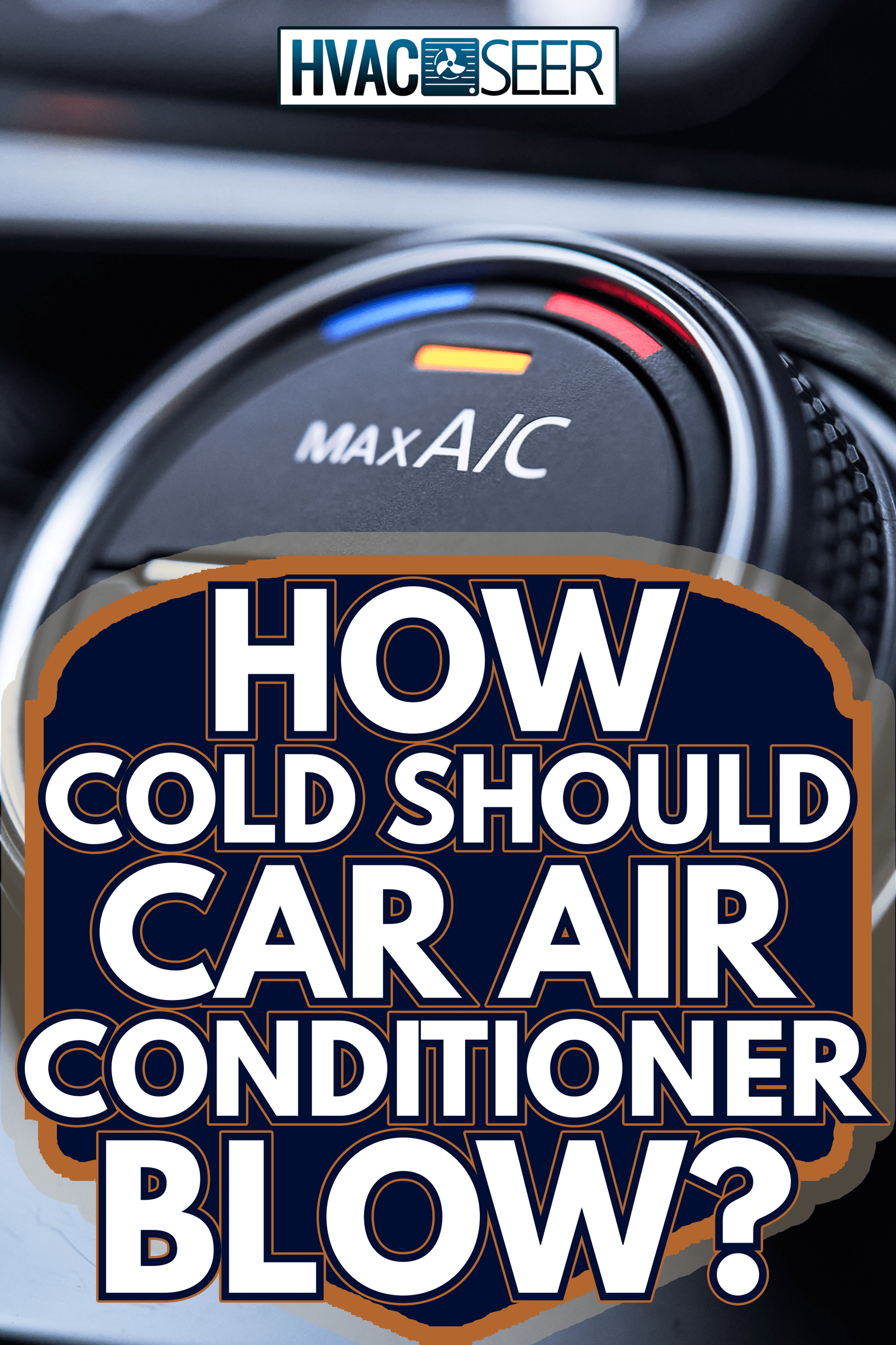
What Temperature Should The Car Air Conditioner Blow?
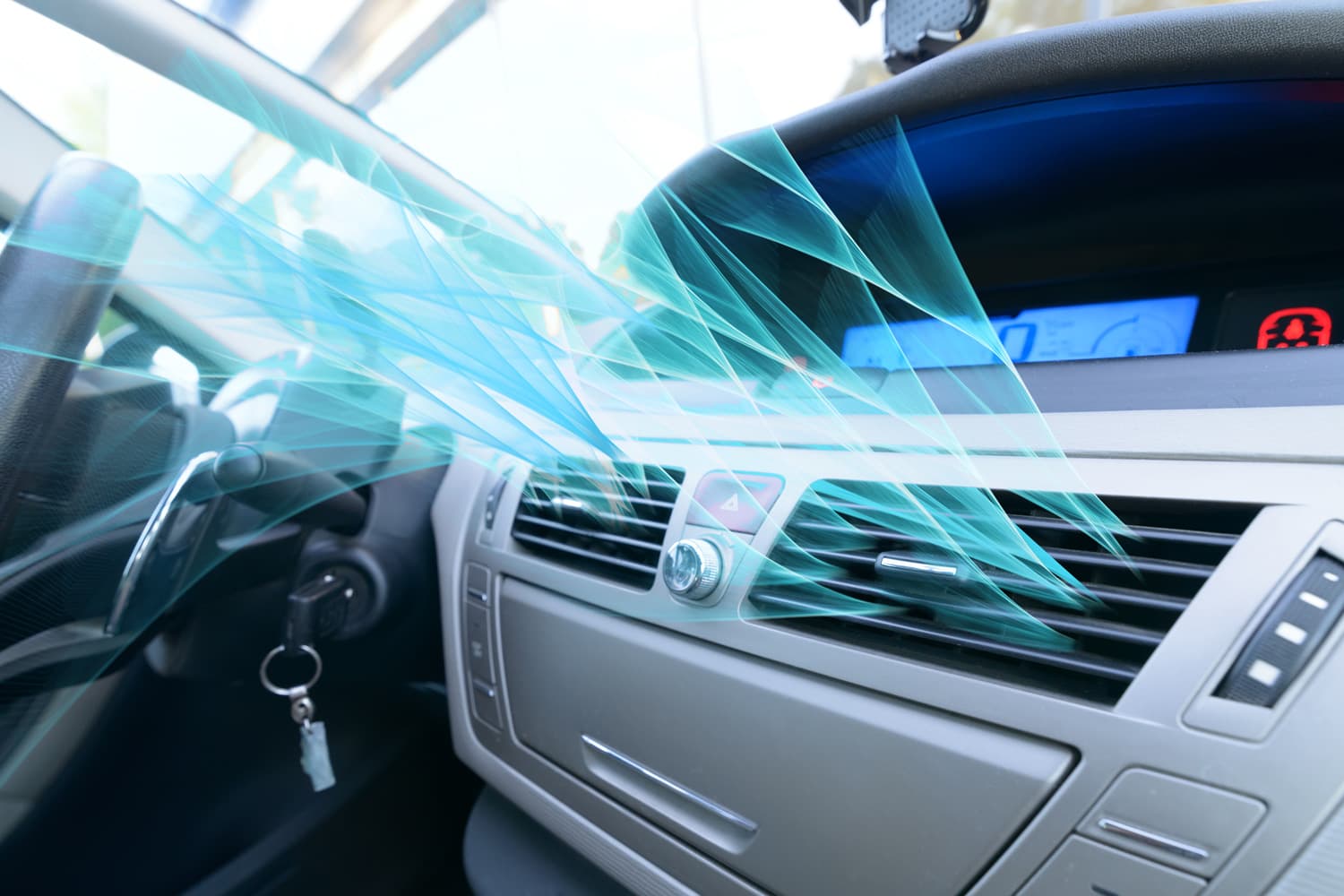
As stated earlier, 45 degrees Fahrenheit is the optimal temperature for a car air conditioner. The actual number fluctuates depending on the air outside.
A car's air conditioning system works by taking in outside air, cooling it down, and blowing it into your car's cabin. So, for example, if the temperature outside is around 70 degrees Fahrenheit, your car air conditioner should be blowing approximately 35 degrees of cool air. If the temperature outside is around 90 degrees Fahrenheit, then about 45 degrees of cool air is what your car air conditioner should be blowing out.
Do take note, though, that these are rough estimates. Even when using an industrial-grade long probe thermometer, it's not uncommon for there to be a minuscule difference in temperature. Additionally, the thermometer leaves out humidity levels.
But don't worry, as the results that would show up will only be a degree or two off from the precise number. Even professionals swear to this as, this is the tool they often use when checking the air conditioner temperature of a car.
How To Check If The Car Air Conditioner Is Cold Enough?
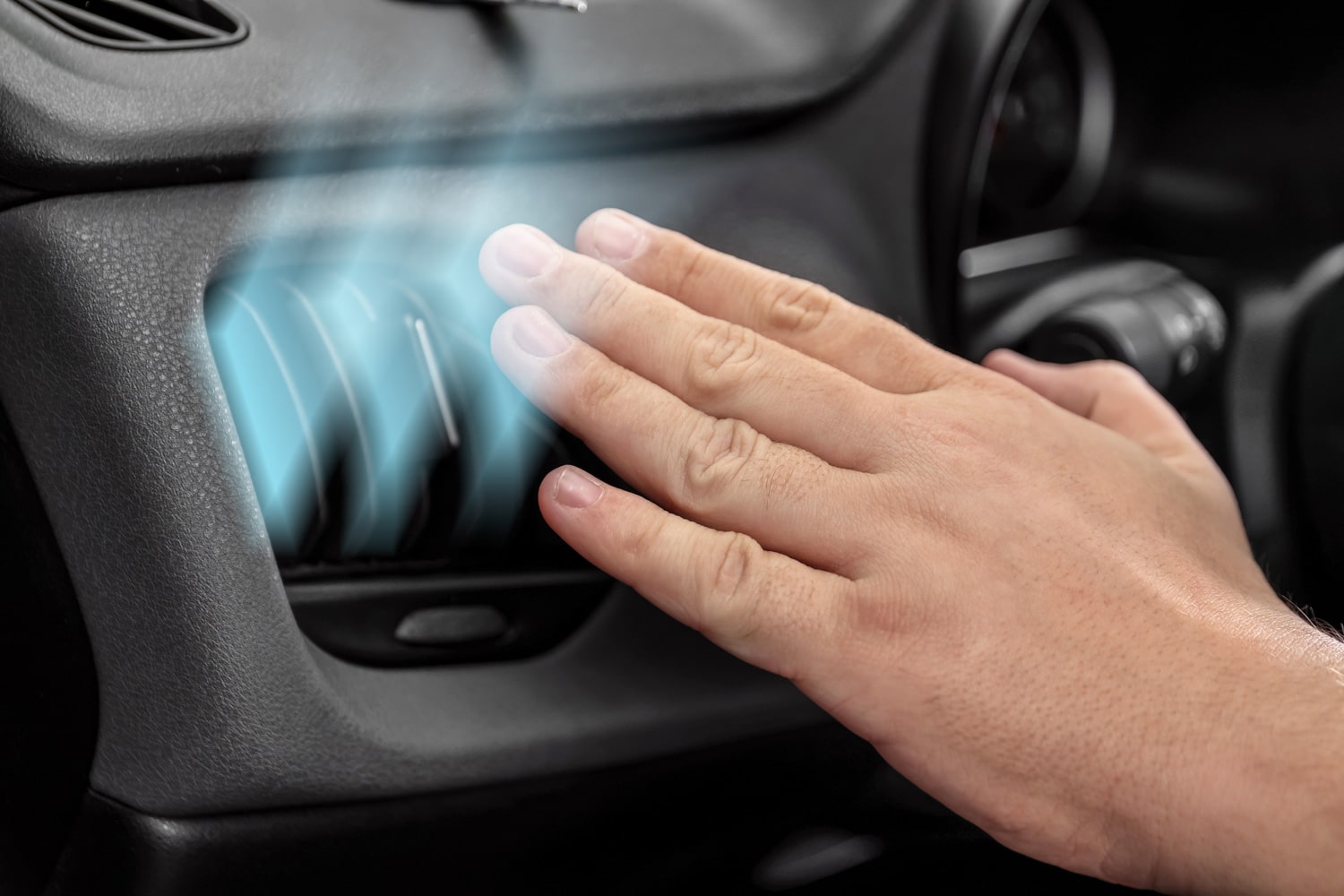
As mentioned earlier, a long probe thermometer is the best tool professionals have when it comes to measuring the temperature of a car's air conditioner. If you have one at home or are planning to buy one, these are the steps to determine if the car AC is cold enough.
- Drive your car to an open area. Make sure that there's no direct sunlight hitting the vehicle.
- Next, make sure to take the temperature outside. This is to determine whether the temperature you get from your car's air conditioner is within the correct range.
- Then, get inside your car. Close all the windows and doors to prevent air from getting in and out of the car. Also, close all the air conditioner vents save for the one on the dashboard.
- Start the engine of the car. Make sure to set the fan at the highest setting first to blow out all the accumulated hot air inside the car. After a few seconds, set the fan at the lowest possible setting before turning the air conditioner to the max.
- From there, insert the long probe thermometer inside the air vent. Then, wait for a few seconds before pulling the thermometer out and reading the temperature. The reading should be around half of what the temperature outside is.
Why Is My Car Air Conditioner Not Blowing Enough Cold Air?
If your car's air conditioner isn't blowing enough cool air, several factors may have caused this. Read on to find out more.
Low Refrigerant Levels
A common issue among older cars is insufficient refrigerant, which can cause your car's air conditioner to not blow enough cool air. Refrigerant is not like fuel. It is not consumed when your AC is running. If refrigerant levels are low, there could be a leak in your system, which is why having your car checked is important, especially for older models.
Another indication for you to know that there is a leak somewhere is if there's a chemical smell wafting inside your car's cabin. We suggest that you immediately have it checked out by a trusted mechanic.
Check out this refrigerant on Amazon.
Blocked Refrigerant Hose
A series of tubes and hoses make up much of your car's air conditioning system. As such, it's not uncommon for some parts to become faulty over time, clogging up in the process.
Cool air won't circulate properly inside the car if not dealt with immediately. Additionally, molds and mildew might find their way into those blocked areas. Have a professional repair this for you.
Failing Motor Blower
The motor blower is responsible for pushing cool or warm air throughout the car's cabin. So if little to no air comes out of the air conditioner, then the motor blower may have broken down.
First, make sure to check if the air filters are blocked or if molds and mildew are growing inside the air conditioning system. If both check out, then it's likely that the motor blower is indeed the cause. Visit an auto shop to have it repaired or replaced for you.
Vacuum Leaks
Faulty wiring and electrical issues can cause leaks inside your car's air conditioning system. The first sign is when you start finding wet patches all over your car's cabin.
Have a professional repair and replace the blown-out fuses and electrical issues. Also, make sure to dry out the areas with wet patches. This is to prevent the growth of mold inside your car.
Tips To Keep The Car Air Conditioner Feeling Cool
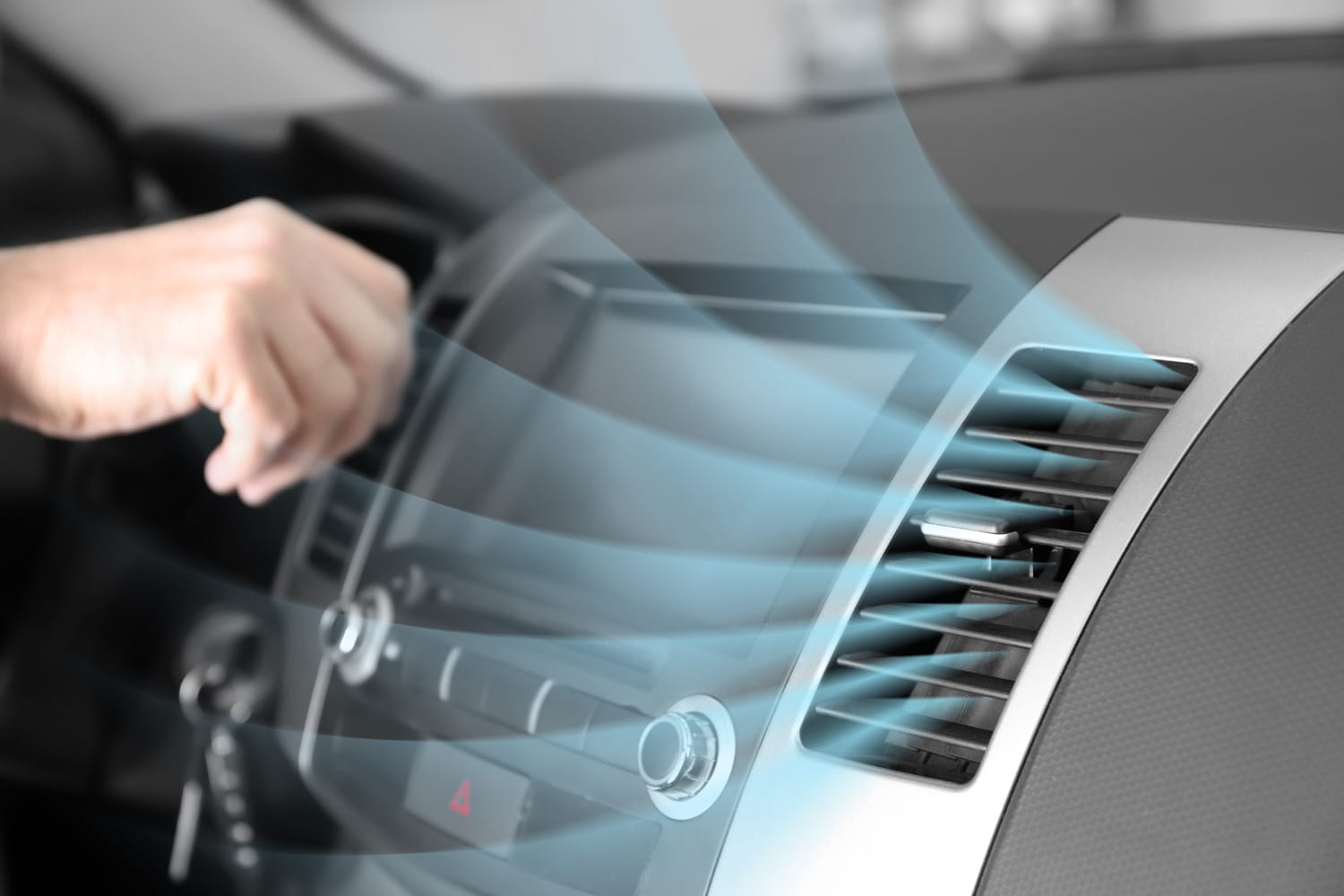
If you want to optimize your car's air conditioning system, here are some tips you can apply. These tips help ensure that the car air conditioner is working at peak condition while preventing heavy stress on the system.
Replace The Air Filters
If the car's air conditioner isn't blowing enough cool air, something must be obstructing its path. First, check if there's any musty scent coming out of the air conditioner. If there is none, the air filters may require some cleaning or a replacement in some cases.
More than likely, dust and debris have clogged up the air filters inside your car's air conditioner. When this happens, the cool air cannot pass through, and as a result, your car isn't getting nearly as cold as you wish.
Make sure to always clean the filters at least once every year. Replace them if necessary. Also, you can visit an auto shop in your area to have the air filters adequately checked out.
Check out these air filters on Amazon.
Park In A Shaded Area
On a day when the sun is blazing hot, it will take some time before your car's air conditioner gets up to speed. By parking your vehicle in a shaded area, you avoid sitting through intense heat while driving as the air conditioning tries to cool the inside of your car.
Another thing that you can do is invest in a sun shade for your windshield. The shade works by bouncing the sunlight back. This allows the temperature inside your car not to be too hot by the time you get back inside.
Check out this windshield sun shade on Amazon.
Avoid Immediately Maxing The AC
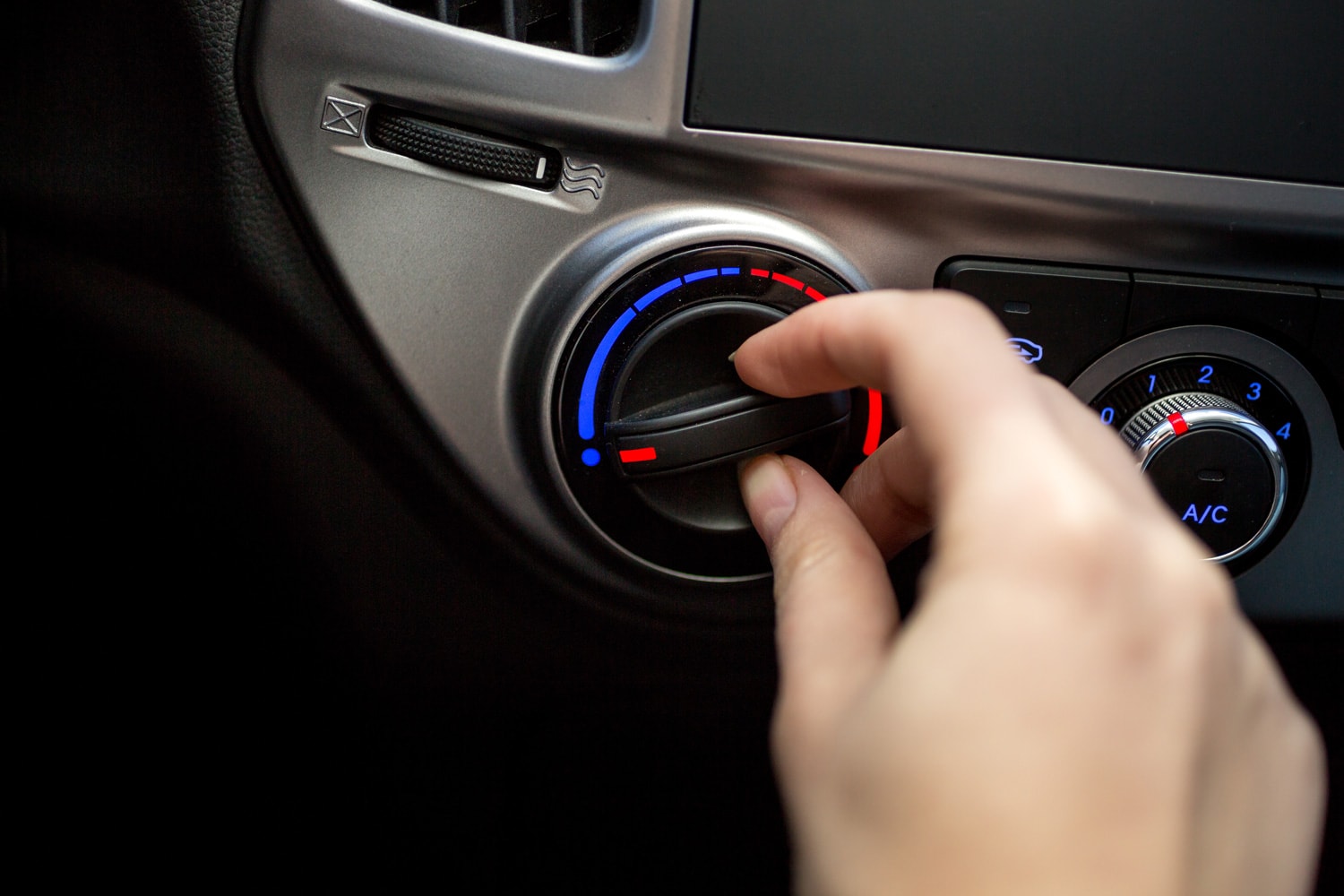
While setting the air conditioner at the highest setting may be tempting, this is not the optimal way to use it. The air conditioning system works by taking in the outside air and cooling it down. Then it comes out through the vents as the cool air we enjoy.
However, the inside of your car is likely to be hotter than the air outside. This is due to the heat and humidity trapped inside after spending time in a warm area. Immediately maxing the air conditioner not only puts an additional burden on the system but it may also take longer for the car to cool.
So what you should do is turn the air conditioner off and set the fan at its highest speed. This will help blow the hot air and humidity out of the system. Then you can put the fan back down and turn the air conditioner to the maximum setting to achieve optimal efficiency.
Final Thoughts

To recap, your car's air conditioner should be blowing air that's around 45 degrees Fahrenheit. If you are experiencing trouble with your car's AC, immediately having it checked by a qualified mechanic will help you avoid further problems.
There are also multiple fixes that you can do to prevent the temperature in your car from rising, especially while it's parked. We hope that this article has helped you!
Did you enjoy reading this article? If so, consider checking out the links below. They will provide additional information related to air conditioners.



